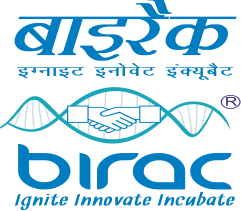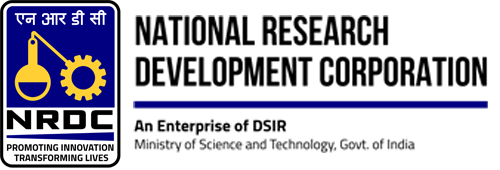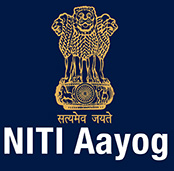   |
INDIA-SPAIN JOINT CALL FOR R&D&I PROJECTS 2024
DST-TDB - CDTI CALL FOR PROPOSALS UNDER THE INDIA – SPAIN PROGRAMME OF COOPERATION ON INDUSTRIAL RESEARCH AND DEVELOPMENT
On January 30th 2013, a Joint Programme for Co-operation was established by the Department of Science and Technology (DST); Ministry of Science and Technology, India and the Centre for the Development of Technology and Innovation, E.P.E. (CDTI), to promote and fund market-driven research and technology development as well as to encourage partnerships and business-Ied R&D&I collaborative projects between entities from both countries. Within this Programme, CDTI and DST-Technology Development Board (TDB) agreed to launch joint calls for proposals.
This call for proposals aims to launch ambitious joint R&D projects of a high international standard between Indian and Spanish organizations. Potential projects will be funded by DST through TDB in India and CDTI in Spain.
OPEN DATE: 19th DECEMBER 2024
LAST DATE: 20th MAY 2025 (17:30 IST – 14:00 CET)
EXTENDED DATE: 20th JUNE 2025 (15:30 IST- 12:00 CET)
CALL GUIDELINES:
Department of Science & Technology (DST): The Department of Science & Technology (DST) was established in May 1971, serves as Nodal agency of Government of India with the objective of promoting new areas of Science & Technology and to play the role of a nodal department for organising, coordinating and promoting S&T activities in the country. The Department of Science & Technology (DST), Government of India has an important role in building a strong base for Research, Development and Demonstration in India and in addressing national concerns about strengthening science and technology. DST, as a national agency for strengthening the base of Science and Technology in the country has made sincere attempt to address national concerns of India in basic as well as applied research. For more information about DST, please visit www.dst.gov.in
CDTI is a Public Entity under the Ministry of Science, Innovation and Universities, Government of Spain, which fosters the technological development and innovation of Spanish Companies. CDTI is the Nodal and implementing agency from Spain.
Technology Development Board (TDB) on behalf of the DST (Department of Science and Technology), Government of India and the Centre for Technological Development and Innovation (CDTI), Ministry of Science, Innovation and Universities, Government of Spain, are the implementing agencies from the Indian and Spanish sides, respectively.
Technology Development Board (TDB) is a statutory body established by the Government of India under Technology Development Board Act, 1995, to promote development and commercialization of indigenous technology and adaptation of imported technology for much wider application.
The collaborative projects should be innovative and focused on creating possibilities for new technologies, services or processes that will results in commercialisation.
This Call for proposals is open to collaborative R&D projects in the following areas/sectors:
- Circular economy and sustainability: Economically competitive production processes and products, critical materials and/or energy that reduce, replace and/or reuse resources and/or aim for sustainability and environmentally friendly processes and/or technologies. Also including Drinking Water, Water Purification, Water Desalination, Irrigation Technologies and Wastewater Treatment & Management in the subarea of Water Technologies.
- Digital transformation (Smart Mobility, Smart Grids, Smart Cities, etc.).
- Digital health and medical devices: include categories such as mobile health (mHealth), health information technology (IT), wearable devices, telehealth and telemedicine, and personalized medicine.
- Artificial Intelligence
- Advanced Materials
- Any other sector of mutual interest.
Industry-driven and market-oriented R&D projects, joint technological co-operation projects consisting in the development of new or substantial improvement of products, processes or services for the companies that operate and are headquartered in India and industrial partners (start-ups, SMEs and large companies) in Spain will be considered.
The product, process or service must be innovative and there must be a technological intervention involved.
The project should have an obvious advantage and added value resulting from the technological cooperation and mutual contribution between the participants from the partnering countries (e.g. sharing knowledge base, commercial leads, access and sharing of R&D infrastructure etc.).
The project must have a civilian purpose.
The project must be significant for all project partners in a well-balanced consortium.
Duration of projects: Project may be up to two years.
The proposals have to cover the thematic areas mentioned in point 2 to enhance bilateral co-operation and develop new partnerships as well as strengthen existing ones.
- Launch of Call for Proposals: 19th December 2024
- Deadline for Submission of completed applications: 20th May 2025 (17:30 IST – 14:00 CET)
- Eligibility feedback to applicants: 27th June 2025
- Label concession/announcement of awarded projects (estimated): November 2025
- Extended Date for Submission of completed applications: 20th June 2025 (15:30 IST-12:00 CET)
Important Note:
To avoid delays, please submit your proposal well in advance of the deadline. No extensions or clarification will be entertained after the deadline.
Eligible Spanish Applicants
Spanish consortia should include at least one company. Participation of research institutes/universities and other R&D organizations is welcome as self-funded participants or subcontractors.
Eligible Indian Applicants
Eligible Indian applicants must be a commercial (for profit) company registered under The Companies Act 1956/2013, which operates in and is headquartered in India. Academic institutions and research centres, (including non-profit research institutes recognized by GoI) that are headquartered and operate from India are strongly encouraged to partner with the participating industry (IPL: Indian Project Lead).
Specific criteria for eligible applicants are as follows:
- The Indian Project Lead (IPL) company applying for the project must be incorporated in India under The Companies Act 1956/2013.
- The company must be at least 51% owned by Indian citizens over the total duration of the project.
- The IPL should have the required expertise and team capacity to manage the proposed project.
- The Indian Project Lead company should lead the project from Indian side and if required bring in other Industry Partners or Academic/R&D Institutions as partners.
- Applicants already possesses basic infrastructures/test beds and or developed basic Proof of Concept (PoC).
Non eligibility criteria:
- Sole proprietors and partnership firms are not eligible for support under this programme.
- Companies headquartered and owned outside India and their subsidiaries in India, or vice versa, are not eligible to receive funding from DST-TDB under this programme.
- Further multiple projects being executed concurrently by the IPL under DST/TDB programmes will be discouraged.
Preferences will be given to:
- Indian companies interested in partnership with government-funded Indian academic and R&D institutions.
- Indian companies having in-house R&D Centre which is recognised by the Department of Scientific and Industrial Research (DSIR), Government of India. For details, please refer to and contact: http://www.dsir.gov.in
- Companies that fall under the Micro, Small and Medium Enterprise (MSME) category, as defined by the Government of India. For definition of MSME, please refer to http://www.dcmsme.gov.in/ssiindia/defination_msme.htm
- In the case of India where business entities are participants in a project, but without prior R&D activities, the project must show a plan of how their capabilities are going to be developed in the business entity in the following years in order to:
- Perform future R&D projects.
- Develop the human resource capability within the business.
- Take technologies that are being developed to market.
- Develop new intellectual property.
- Enhance the Indian technology-based companies’ ecosystem.
- Note that applicants must already possess basic infrastructure/test beds and developed basic Proof of Concept (PoC).
For First stage – “Common International phase”:
Joint R&D&I proposals must be submitted to CDTI and TDB, by the 20th May 2025 (17:30 IST – 14:00 CET) in order to consider the eligibility. Unilaterally submitted proposals shall not be considered.
In India, the participants will have to submit the application online through the TDB web portal (http://tdb.gov.in/)
In Spain the participants will have to submit a formal R&D international project application through CDT’s website (https://sede.cdti.gob.es/)
Documents:
Indian and Spanish co-applicants must elaborate a single project proposal application (Annex 1 – Application Form). The Bilateral Co-operation form must emphasize how the proposed collaboration adds value, technology highlights and innovations, technical activities to be developed by the Parties involved underlining their respective contributions in the collaborative work being carried out on each side, their expertise, etc.
Please note that this Application Form must be sealed and signed by all coapplicants at the end of the document, expressly indicating name and designation of the authorized signatory in the organization. Any other relevant information not expressly mentioned on the form and that the applicants consider relevant may be included as Annexes.
- In addition to the Application Form, co-applicants must submit the followingdocuments as relevant appendices:
Consortium Agreement in English whereby the co-applicants should agree upon the ownership, access rights and shared benefits of intellectual property generated during the co-operation, to be submitted to CDTI and TDB. The Consortium Agreement needs to be sealed and signed by all co-applicants. (applicable to the relevant partner country only)
The Consortium Agreement should basically cover the following points:
- Percentage sharing of IP Rights on new product/process/knowledge being developed/ created/invented during this collaborative R&D process.
- Background IP’s of the partnership (If Any) to be used for this project scope.
- Probable/possible market for the new product/process/knowledge & rights to manufacture/License in the respective market for the period of time.
- Percentage of Royalty share.
- Dispute and arbitration clause
- Exclusivity and Non-Exclusivity rights if any
- Duration of this agreement in force
- Any other clause which is exclusive for the scope of the project
Additional specific documents required by TDB
Key Documents Required from Indian Applicant:
1. Application form : Download
2. Consortium Agreement: Download
1. Covering letter (Reference template)
2.Share Holding Pattern of the Company (highlighting the Foreign Investment, if any) (Reference template)
3. Milestone- Budget Sheet (Reference template)
4. Project Summary (Reference template)
5. Registration Certificate of all project partners, including Academia/R&D Labs, issued by competent authority
6. In case of in-house R&D Centres, all relevant certificates from stakeholders, competent authority relevant for in-house R&D, Defence Manufacturing & production should be submitted.
7. Audited Annual Reports (including Income Tax Return, Balance Sheet, and Profit & Loss Account & Auditor’s Reports) of all Consortium partners for the last three Financial Years.
8. Know Your Customer (KYC) documents of all Consortium partner(s). KYC means Identity & Address proof of the organization which includes Company PAN Card, Electricity Bill, etc.)
9. Self-Declaration of Applicant on Company letterhead, signed by MD/CEO/Company Secretary/competent authority, as all Statutory Norms are compiled by the Applicant till date.
10. Copy of all relevant Certification like CMMI, ISO, etc. if any.
11. India-Spain EOI Form India-Spain Joint Call For R&D&I Projects 2024 : (Reference template)
12.Presentation for Evaluation Committee Meeting – PPT (Reference template) : (Reference template)
For Second Stage – “National level”
Only those proposals which have positive eligibility by qualifying the first stage, as mentioned above, by CDTI and TDB will be considered for submission of the individual R&D&I proposal in their own language as specified by each agency.
- The funding Proposal is required to be submitted in English to TDB.
- The funding Proposal is required to be submitted in Spanish to CDTI:
On the Spanish side, only industrial partners, individually, are able to submit the funding proposal and other required documents on https://sede.cdti.gob.es/ . Application must be submitted within 20 working days after receiving the notification of eligibility.
The complete details of the Call are available on TDB’s and CDTI’s websites: http://tdb.gov.in/ and http://www.cdti.es
Applicants are recommended to contact the nodal representatives at their national funding organizations whose contact details are given below:
SPAIN
Ms. Pilar de Miguel, ISIP Program Coordinator
Center for Technology development and Innovation-CDTI
C/Cid, 4-28001 Madrid, Spain
+34 91 581 55 00
mariapilar[dot]demiguel[at]cdti[dot]es
SPAIN
Ms. Patricia Sánchez, Representative of CDTI in India
Embassy of Spain in India
12 Prithviraj Road, New Delhi-110011 India
patricia[dot]sanchez[at]cdti[dot]es; india[at]cdti[dot]es
Website: www.cdti.es
INDIA
Department of Science and Technology(DST), Government of India
Dr. Nagaboopathy Mohan
Nodal officer International Cooperation,
dst-icd[at]gov[dot]in
INDIA
Technology Development Board (TDB), Government of India
Dr. Somnath Paul
Project Manager
Please contact for call related queries:
somnath[dot]paul[at]tdb[dot]gov[dot]in
011-26511184 ,+91 8013730408
(Queries related to the call shall be written to TDB)
The project must clearly specify the costs of each participant and all the activities pertaining to the project and specify the costs to be borne by the Indian and Spanish partners, respectively. The cost of the Indian and Spanish partners must be eligible under the laws that may be applicable in each country and under internal regulations of CDTI and TDB, respectively.
The funding conditions from DST/TDB are set in INR (₹) and the ones from CDTI in €. Budgets must be expressed in the local currency of each applicant. All figures and budgetary conditions in this Call refer to the value of both currencies as on the date of the launch of the Call.
Funding for the Spanish participant(s)
The Spanish company will be funded according to the International Technological Cooperation Projects’ conditions identified on CDTI’s website. CDTI can only provide funding to Spanish companies subject to budget availability.
Funding for the Indian participant(s)
TDB, on behalf of the Department of Science & Technology (DST), Government of India, will fund the Indian side of the jointly recommended projects with under-mentioned details:
- Total project funding as “Grant” for Indian applicants is up to 50% with a limit of maximum of ₹150.00 Lakhs per project.
- Indian industry may receive up to 50% of their part of the eligible cost on “Reimbursement Basis”, for cost(s) already incurred on a proportionate basis during the project implementation period after sanction of grant to the project.
- Indian R&D organisation/Academic institution budget share of the project can range upto 50% or decided by the Project Evaluation Committee and may receive up to 100% of their costs on advance basis.
- DST funding support for the project (includes industry support and academia/R&D organization must be matched equally (1:1) by Indian Industry. The exact amount of funding will be approved by the Indian Project Evaluation Committee based on merit and the contribution of industry, R&D organisation and academic partners respectively.
- Funding from other public sector sources will be taken into account when awarding the grant, and applicants will be asked to declare funding from other sources in the application.
Please refer to the Frequently Asked Questions (FAQs) for additional information and clarifications
DST through TDB shall provide the funding in the following proportion to the Indian Applicants. These are indicative figures and are subject to change depending on the type of Project and recommendation by the Joint Project Evaluation Committee: (Please refer the FAQs for Eligible and Non-Eligible costs).
1. Equipment 40%
2. Manpower 30%
3. Consumables 20%
4. Travel/Others 10%
Projects first will be evaluated at the national level according to the following criteria:
- Technology maturity stage / proof of concept
- Technical Capability (team, infrastructure etc.)
- Ability to deliver/complete the project
- Financial Capability/Health of the company
- Project Balance in terms of costs and efforts between partners
- Commercialisation Capability.
- Product / Technology innovation
- Process / functionality /integration/service innovation
- Potential of Business and Commercialization success with reference to Target Market
- Expected economic results from the accomplishment of the project.
All received proposals are peer reviewed and processed independently by both sides (India & Spain).
After having received the recommendations of the respective evaluation panels, DST/TDB, and CDTI will jointly arrive at a mutual understanding on the projects to be funded.
The evaluation criteria are the following:
1 Significant Criteria
- Financial capacity of Partner
- Formal Agreement between Partners
2 Basic Assessment Criteria
- Partnership and Partners
- Well balanced partnership
- Added Value through co-operation
- Technology Capacity of all Partners
- Managerial Capacity of all Partners
- Project Structure
- Methodology and Planning Approach
- Milestones and deliverables
- Cost and financing structure
- Financing commitment of each Partner
3 Technology and Innovation
- Technological Advance
- Degree of technological maturity and risk
- Degree of technological maturity and risk
- Innovation
- Degree of innovation
- Geographical / sector impact
4 Market and Competitiveness
- Market and profitability
- Market size
- Market access and risk
- Return on investment
- Competitive advantages
- Strategic importance of the project
- Enhanced capabilities and visibility
DST/TDB and CDTI will, after having formed their mutual understanding on the projects to be funded, make their funding decisions according to their normal procedures and rules and on a non-exchange of funds basis. CDTI and TDB will inform the beneficiaries about the funding decisions according to their normal practice.
Funding granted by DST-TDB and CDTI will be governed by the general terms and conditions of each funding organization. Both parties will carry out an international follow-up until the completion of the projects and inform the counterpart about the success or failure of the international cooperation at the end of the project.
Each participant should submit financial and technical reports to their national funding organisations as and when requested, according to their national regulations. The progress and final results of each individual contract/letter of grant will be monitored by the respective national funding organisations.
Spanish and Indian company seeking partner for joint projects can contact CDTI and TDB, respectively. To facilitate the matchmaking, applicants should complete the Expression of Interest (EoI) form to identify potential partners in the respective countries.







